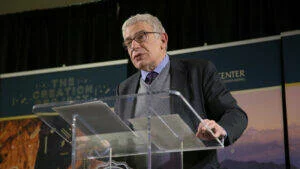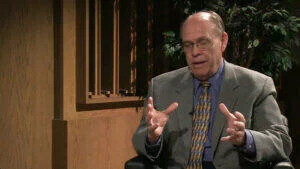Timothy is told to “fan into flame” the gift of God,” a gift that he received from the laying on of Paul’s and others hands’ (2 Timothy 1:7). Last week, in “Fan into Flame the Gift of God,” we looked at this verse and began to explore the significance of 2 Timothy 1:7 for human achievement.
We saw that one of Paul’s key instructions to Timothy is that he is to ignite the gift God has given him. Timothy is to develop his giftedness for ministry. Or, to put it another way, Timothy is to seek growing achievement in the use of his gift of preaching and teaching.
If this reading of the verse is correct, what are the implications for thinking about achievement in ministry? A few thoughts come to mind.
1. Giftedness requires nurturing.
First, giftedness requires nurturing. Not even Billy Graham could preach like Billy Graham when he started out. His gift developed—it was practiced, used, and it grew. Even the most gifted people in ministry must add effort, diligence, and discipline to the gift.
Too often gifted people just coast, expecting their gift to get them where they need to be. I’ve seen this time and time again in the music world. There are those who are greatly gifted, but don’t work hard. They can do fairly well. There are those who are only moderately gifted, but work really hard. They can also do well. But the musicians who truly excel are those who are greatly gifted and work really hard. That combination can’t be beat. But the point is not about what “can’t be beat.” The point is that with work, the gift is fanned into flame.
2. “Self-improvement” is not only good, but spiritual.
Second, clearly there is nothing wrong with wanting to develop and grow in one’s ministry abilities. Sometimes Christians put “self-improvement” in the “worldly” category of things. Of course there are worldly ways of thinking about self-improvement. But 2 Timothy 1:7 shows us that there is also a godly way to think about it. Not only is “self-improvement” OK (and by this we acknowledge that “self-improvement” is ultimately only possible by the Spirit’s powerful working within us), but, according to Paul, it is necessary. It is not so we might realize our “full potential,” or whatever. It is not for our fame or glory—what a perverse travesty! It is so that we can more effective in service of others to the glory of Christ.
3. There is a human dimension to God’s work.
Third, there is a “human” dimension to God’s work. Sometimes we operate like implicit docetists, thinking that human factors are irrelevant in ministry. God is God, after all, and he doesn’t need us to achieve his purposes. But it is clear in Scripture that God chooses to work in and through us humans. Yes, God will accomplish his purposes in spite of (and through) our weaknesses. But that does not mean that we deliberately aim to be mediocre at our tasks and responsibilities! That’s a bizarre twist on the whole thing. We ought to do the best we can with the gifts God has given us, by the power of the Spirit, in service of others, and for the glory of Christ.
In conclusion, fan into flame the gift of God. Don’t be ashamed to seek improvement, but work at it. God wants the gift he has endowed to grow and become fruitful.








Comments
Be the first one to make a comment!